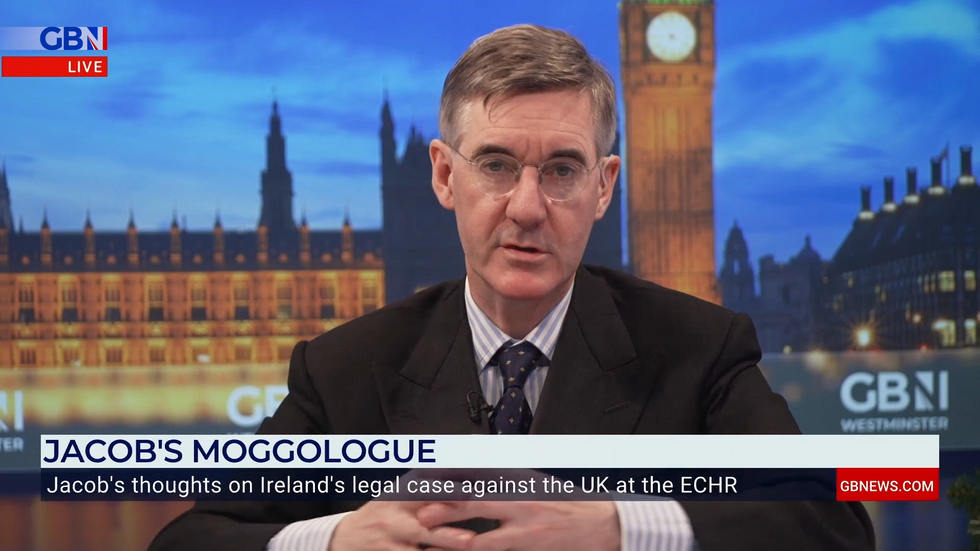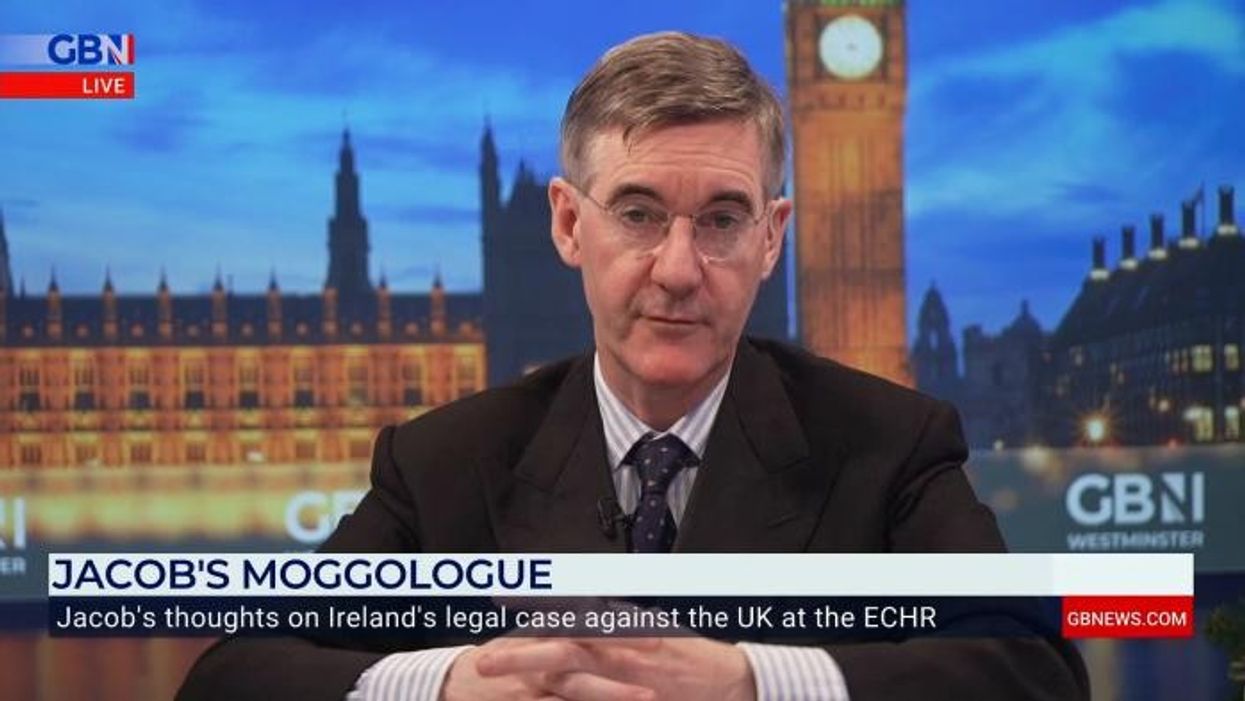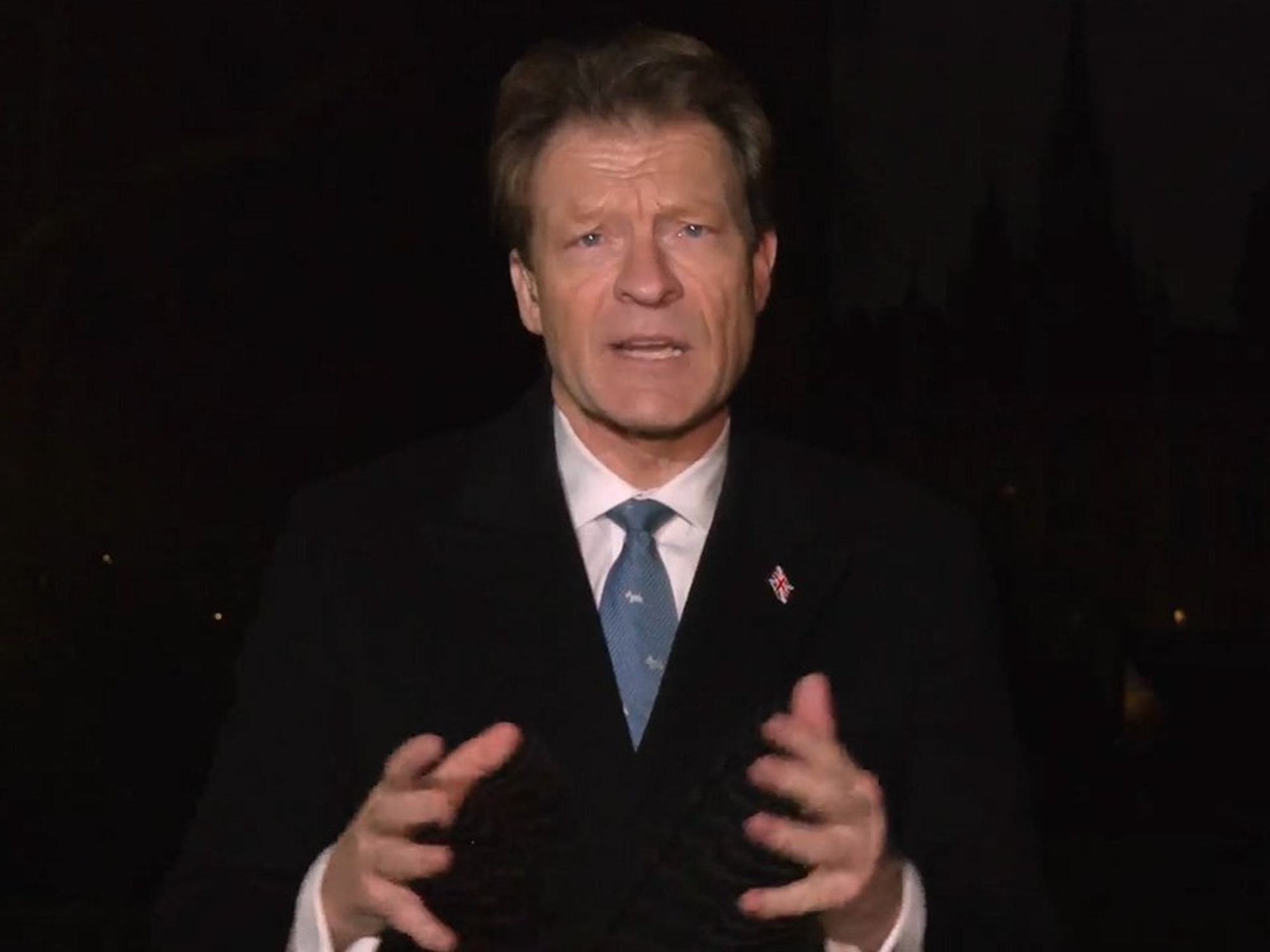It is our country and maintaining peace within it must be our choice, says Jacob Rees-Mogg

Jacob Rees-Mogg shares his thoughts on Ireland's legal case against the UK
Don't Miss
The Government of the Republic of Ireland is taking the United Kingdom's government to court over the Northern Ireland Troubles Legacy Bill.
The Bill was passed in September and it gives a limited amnesty to those involved in the Troubles after having seen historic prosecutions from that period.
What the Bill seeks to do is to bring this problem to an end by giving amnesty to soldiers and indeed terrorists if they cooperate with the new independent Commission for Reconciliation and Information Recovery, providing the information that will allow families who have not found out what happened to their family members and friends in the past to get the information that they need.

Jacob Rees-Mogg shares his thoughts on Ireland's legal case against the UK
|GB News
And in the lead up to the bill's introduction, when it was still a bill, it had been suggested that it could be incompatible with the ECHR because of the fact that the ECHR has ruled against amnesties in the past.
But this issue refers us back to the fundamental fissure within British politics today.
Where does power lie?
Some people believe in international law, with unaccountable judges, who have free reign in the case of the ECR to expand the scope of its jurisdiction with no democratic mandate or real legitimacy.
Others believe, as I do in parliamentary sovereignty, that Parliament is the highest court in the land, as your representative, as the representative of a sovereign people.
Those who believe in parliamentary sovereignty have the constitution on their side.
Historically, parliamentary sovereignty is the underpinning of our unwritten constitution.
It recognises that the law in politics must coexist, and that good government requires flexibility.
In this case, to bring to an end endless investigations of old men for long since past events if, if, they're willing to cooperate in explaining what happened and revealing the truth to those who were affected all this time ago.
But this is fundamentally a political choice, when you're settling a long running period of disorder of terrorism, there are hard choices to be made.
Terrorists who had committed murder were let out of prison in a way, in a means in an effort to achieve peace.
Difficult things have to be done, and it's a political choice about the best way to maintain peace in Northern Ireland, so that a foreign government should seek to overrule such a decision in a foreign court is a monstrous intervention in our sovereignty, which the Irish would deeply resent if we tried to do it to them.
If His Majesty's government took the Irish government to court, the accusations of colonialism would be heard screeching all the way to Washington DC.
It is our country and maintaining peace within it must be our choice, even if those choices are difficult and include the potential of an amnesty for terrorists which is included within this Act.











